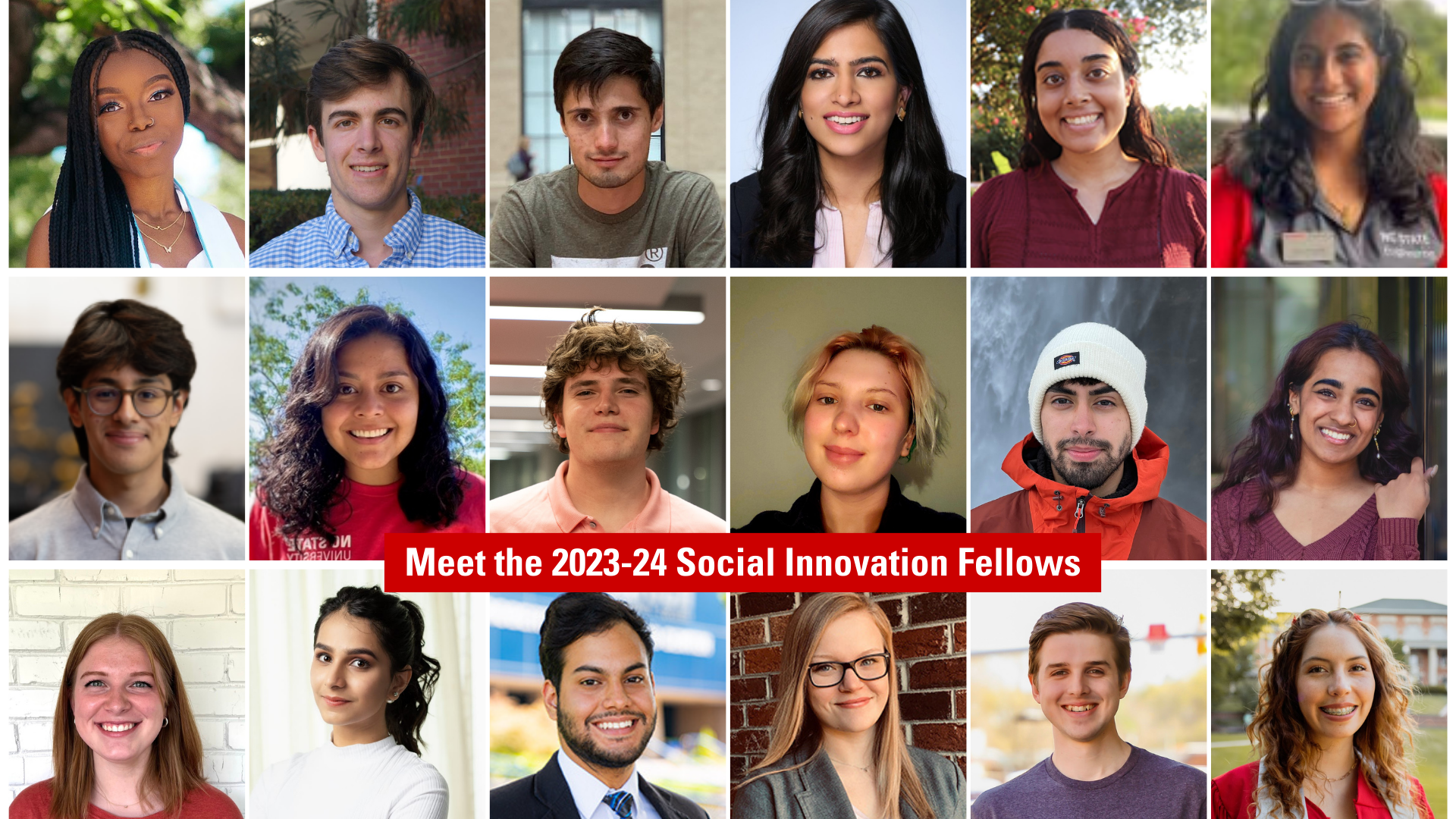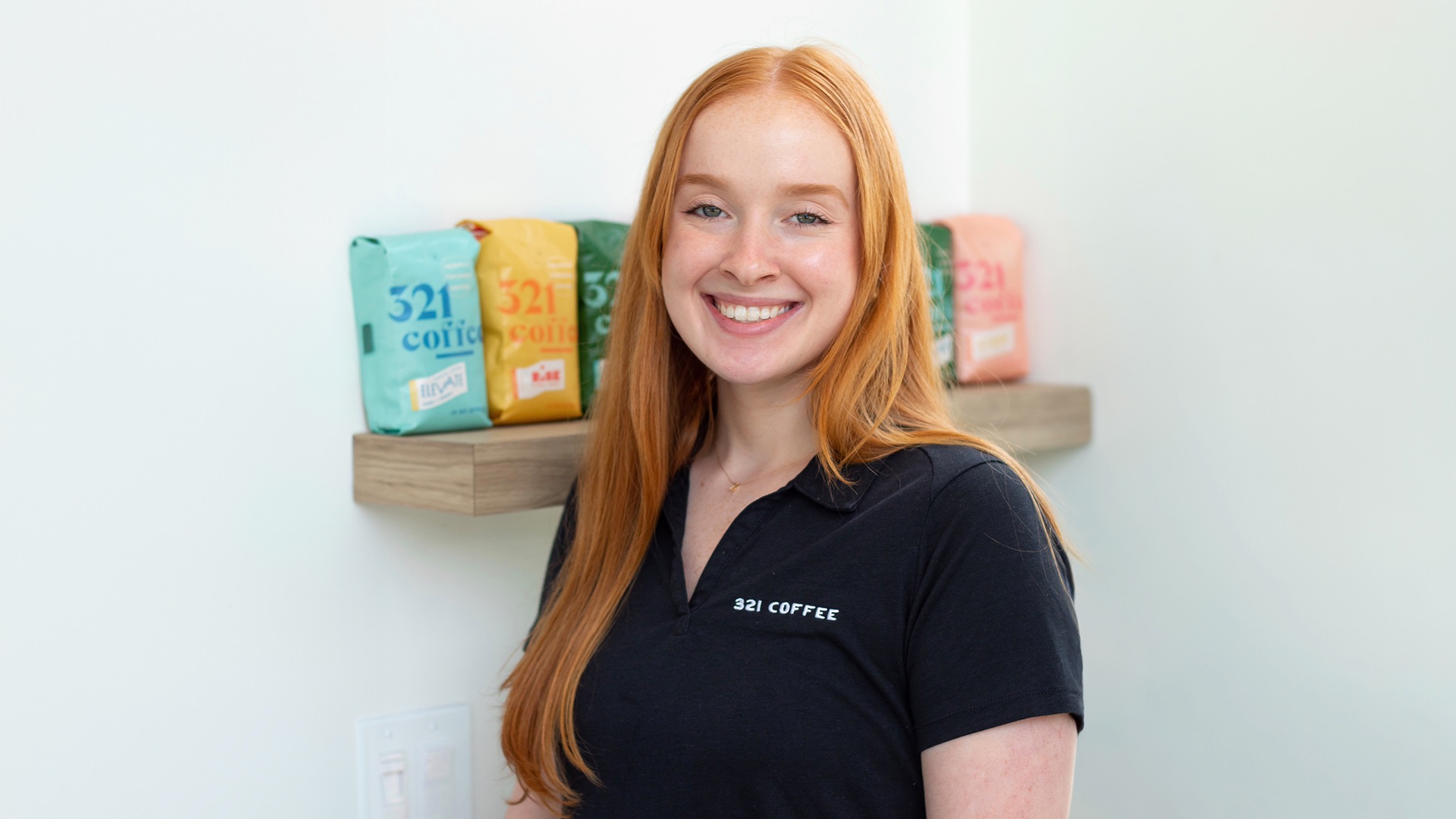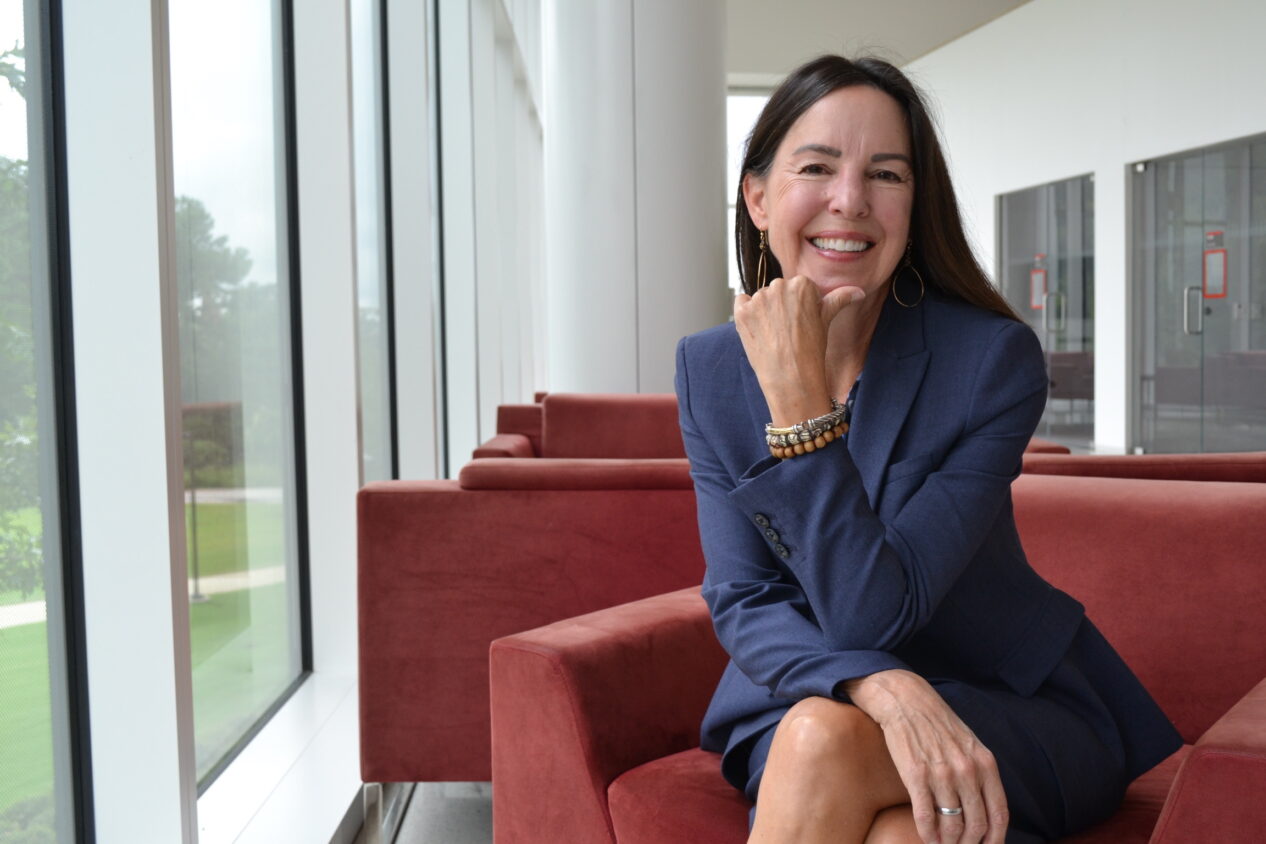Preparing to Pivot
The 2022-23 Social Innovation Fellows Mid-Year Review
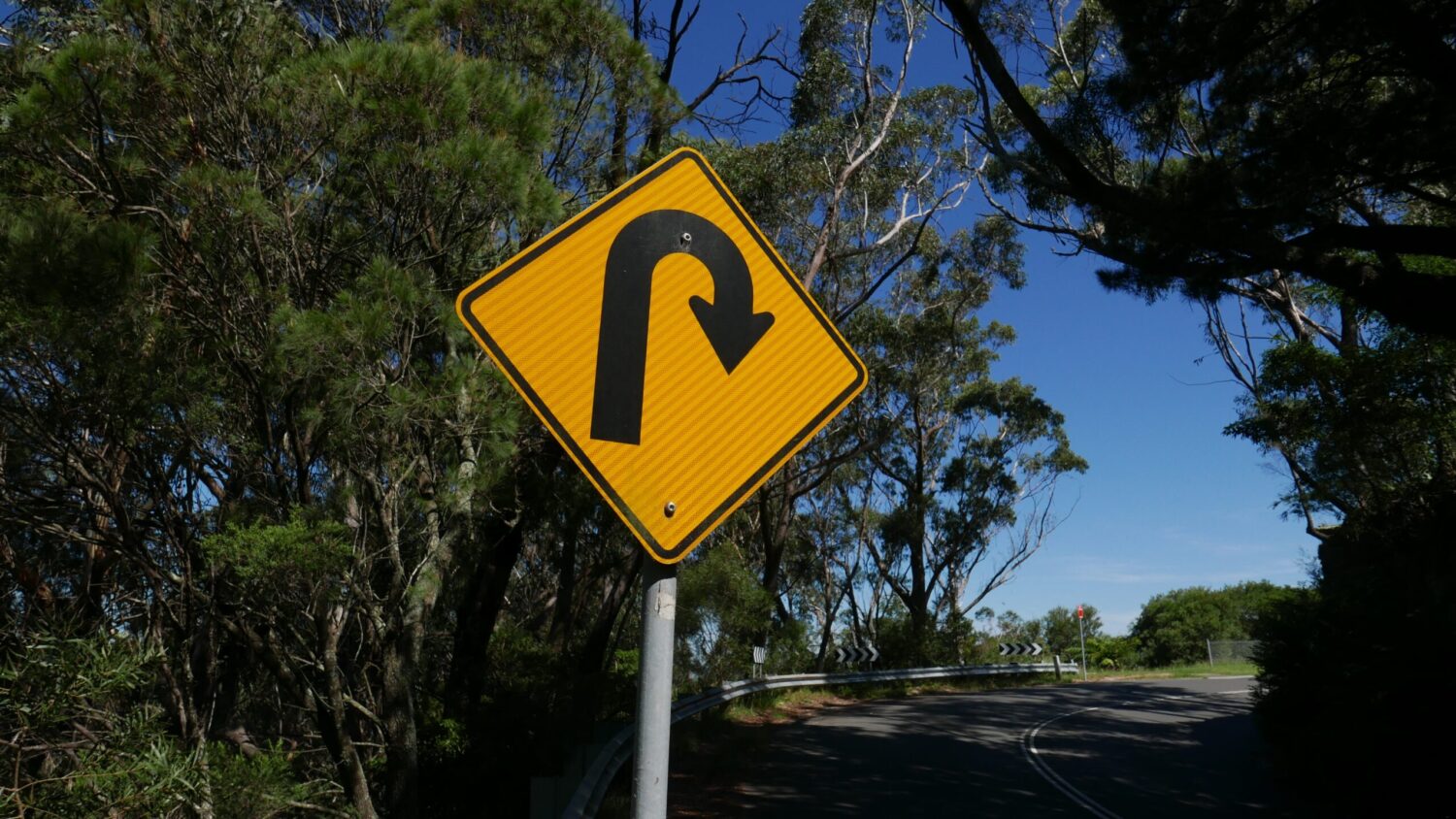
It can be difficult to stand up and declare how uncertain you are. However, at this year’s mid-year reception, the 2022-23 cohort of Social Innovation Fellows (SIF) were adamant about doing just that. They shared their obstacles, their corrected assumptions, and their unexpected project transitions along with all the hard work they have put in so far. These incredible student teams are collaborating over some fascinating projects and while only halfway through their experience, already have great insights to share.
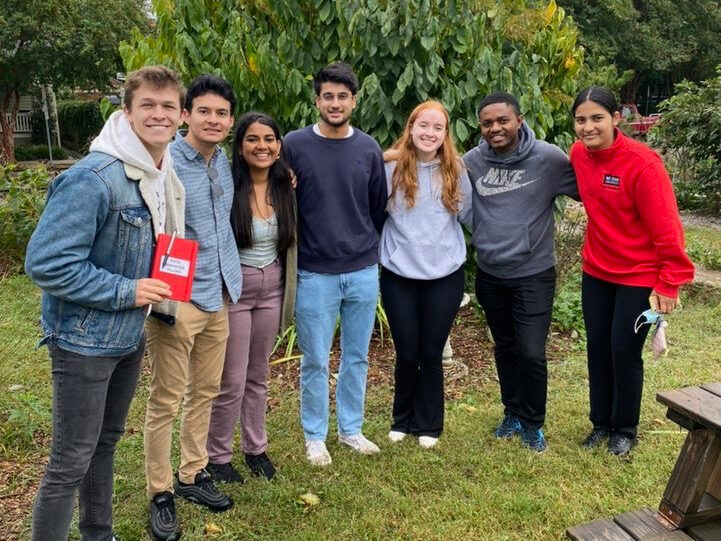
Raleigh City Farm Team
Fellows: Sahib Chandi, Audrey Westlund, Ben Dudley, Harshita Gupta, Jabson Aloma, Syna Sharma; Senior Fellows: Luis Jimenez, Emma Wilson; Mentor: Raj Narayan
Raleigh City Farm (RCF) is an urban farm located on the northeastern side of downtown Raleigh. Conceived as merely an idea back in 2010, they have been working to educate and involve the urban community in agriculture ever since. RCF works on a myriad of issues around food education and food insecurity by spearheading sustainable farming techniques, donating produce, operating a pay-what-you-can farm stand, and collaborating heavily to regularly engage schools, local volunteers, and corporate partners.
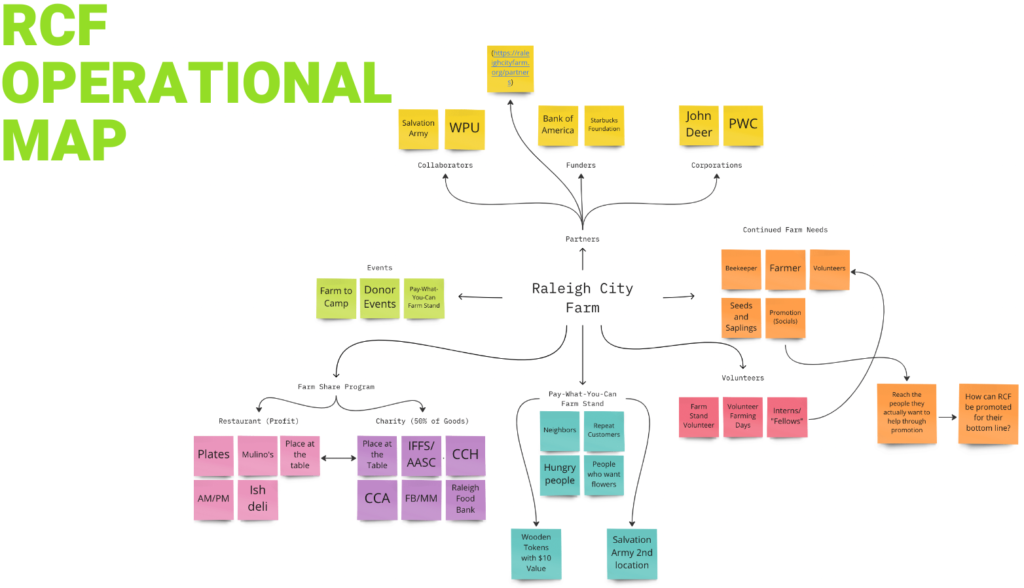
The RCF team began their presentation by discussing their stakeholder interviews, an approach to comprehensively understanding complex problems through understanding who they impact. They interviewed farm volunteers, farm stand patrons, volunteer coordinators, and city counselors. Every interview uncovered more layers to their project, which created a challenge for the team to “stay organized and focused with a constantly changing project scope.”
As the team developed a more comprehensive picture, they realized that Raleigh’s sustainable food ecosystem is a complex web of actors, each with their own goals, habits, and willingness towards collaboration. They grappled with whether or not they should try to directly contribute to Raleigh City Farm, perhaps in helping them establish more urban green spaces or in relocate, or if they should attempt to focus on the ecosystem as a whole. These questions loomed large for the team without clear answers.
The Fellows also took a hard look at their journey as a collective. They began the year with organized and assigned roles, but in working together grew to discover their individual strengths and began to adopt a more fluid team structure. This also inspired them to ask “how can we lean into our individual weaknesses?” Doing so helped them to dissolve their professed ‘imposter syndrome’ and empowered them to ask difficult questions.
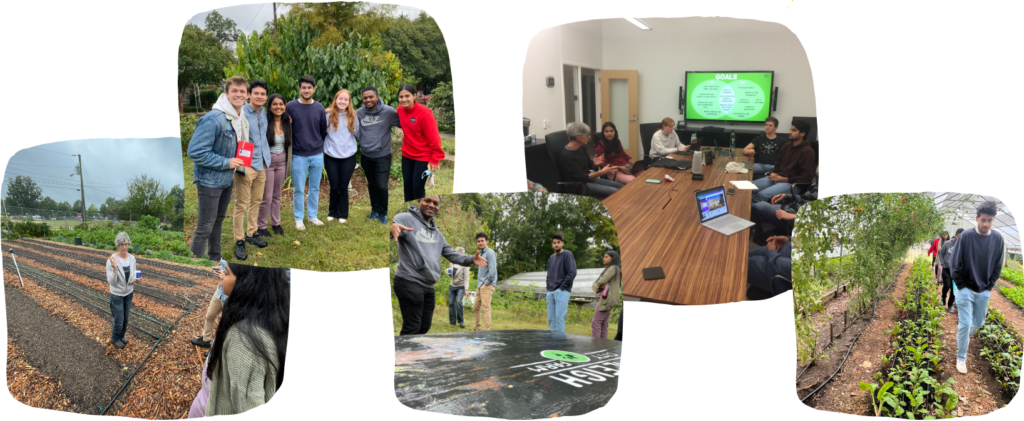
The RCF team concluded their presentation by expressing a great insight into how “at first [they] thought systemic change was only changing policy, but now [they] think about it holistically and how it requires changing mental models and paradigms.” They plan to move into next semester with a focus on narrowing down their scope to primarily empowering people to grow their own food and while “the future is a bit foggy and ambiguous, we’re excited to see where our journey takes us.”
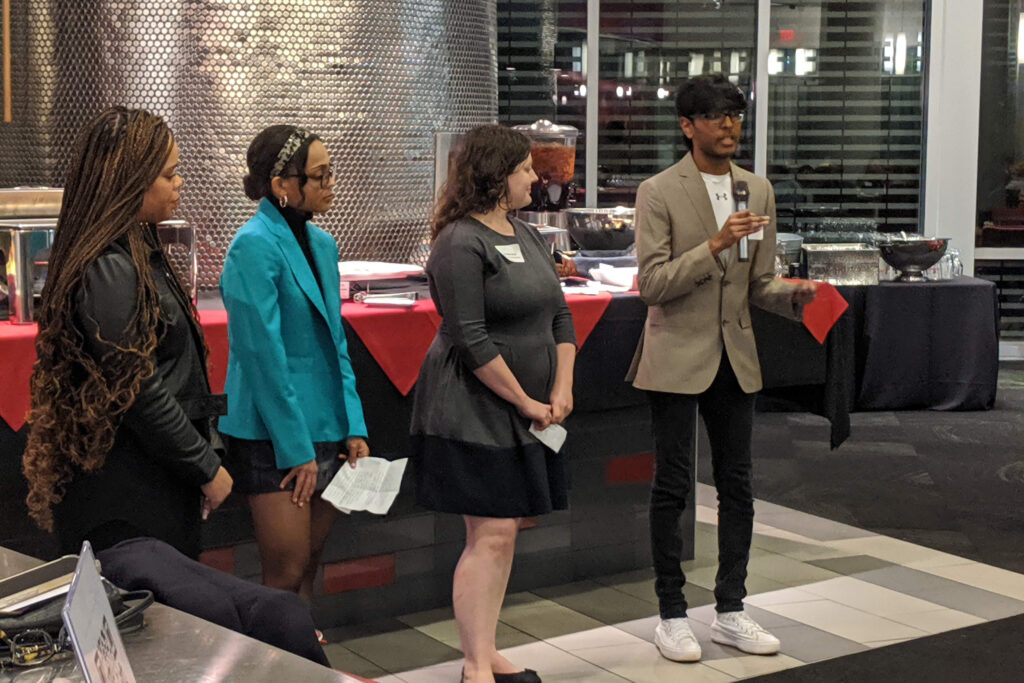
Town of Zebulon Team
Fellows: Kameryn Sessoms, Sydney Earl, Kristen Belue, Kiran Soma, Natalie Cotton; Senior Fellow: Austin Dunlow; Mentor: Miles Wright
The town of Zebulon NC is a quaint little railroad town that is quickly becoming a bustling suburban community. Joe Moore, town manager and NC State PhD student in the College of Design, tasked this Fellows team with “helping to improve community engagement in the town as it grows.” And grow it will – Zebulon is projected to grow from its current population of 6,000 up to 10,000 people by early 2023. With this growth will come issues around expansion, community connection, and revamping their downtown environment without losing touch with their history.
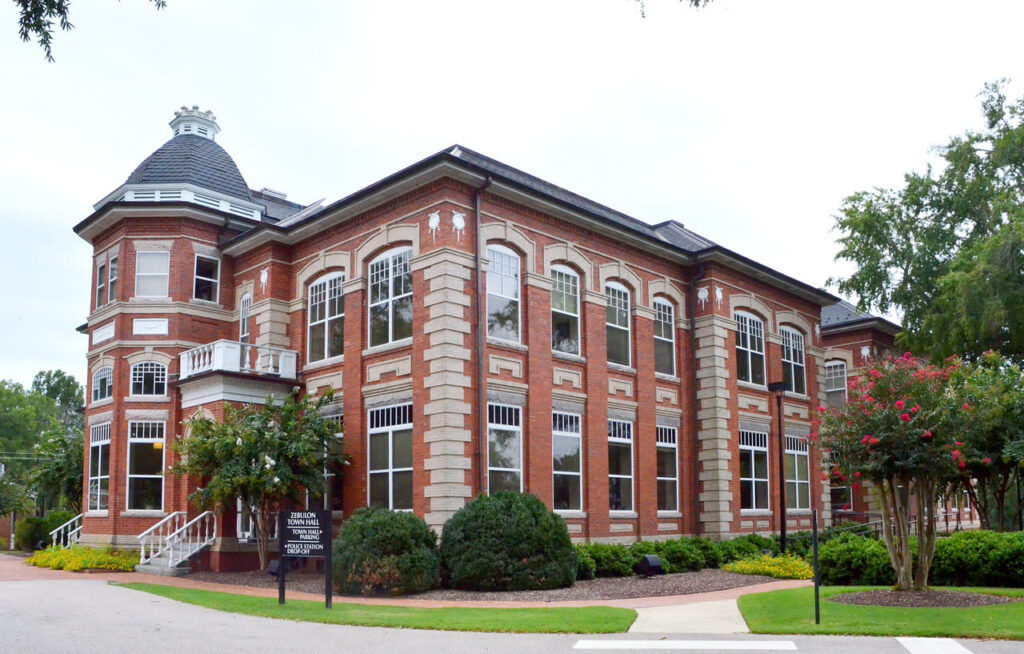
This Fellows team immediately felt overwhelmed by such a large and nebulous problem. Unsure where to start, they began with a focus on people, jumping into creating surveys and interviews for multiple stakeholders. They visited the town and spoke with business owners, government officials, newcomers, and existing residents, but ultimately found that they needed to regroup and learn more from Moore to be able to narrow the scope of their work going forward.
The team originally considered the major problem to be a lack of connection and sense of community within the growing town. They discovered instead that the town’s sense of community and connection was strong, rather, the town and the team were actually needing a way to help this growing population be more engaged in city government.
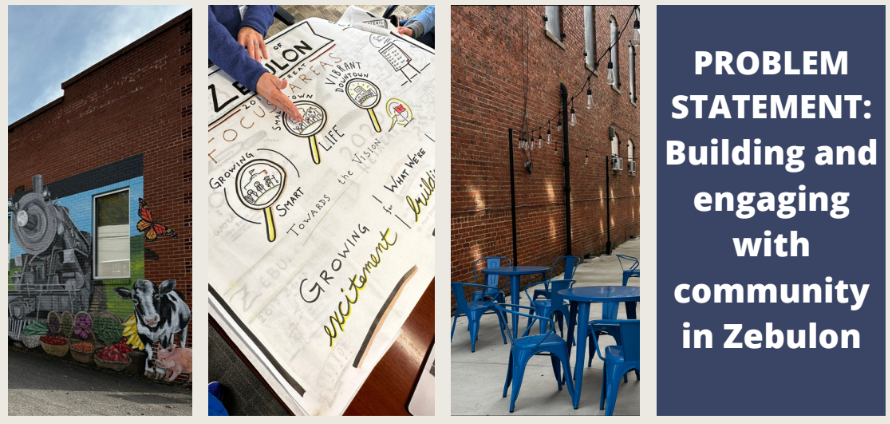
The team now has rebounded towards their new project scope by refining their research and analysis as well as exploring existing resources such as the town’s Citizen Academy Curriculum, a community resource to aid in civic engagement. Their new key questions revolve around understanding what ideas people are already invested in, exploring how other towns have handled this level of growth and change, and how they leverage the town’s existing resources while crafting a strategic plan for growing in-step with their community.
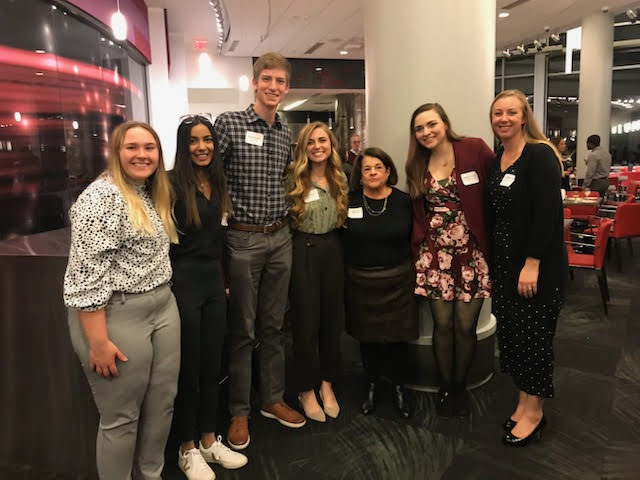
Common Cause Team
Fellows: Amrita Ganesh, Jackie Cerda-Smith, Kelly Koehler, Michaela Langley, Prem Gandhi; Senior Fellows: Shane Fogarty, Jada Wyatt; Mentor: Andrew DiMeo
Common Cause is a nonprofit, nonpartisan organization advocating for accountable government, equal rights, opportunities, and representation. The North Carolina Chapter is heavily focused on increasing voter engagement and allowing for more equitable voting access.
The Common Cause Team opened up with transparency: they acknowledged how easy it is to have preconceived assumptions around voting and how, as students, “we try to solve our problem as quickly and efficiently as possible.” To avoid that pitfall, they started at the foundation and wanted to expose themselves to as much information as possible outside of their preconceptions.
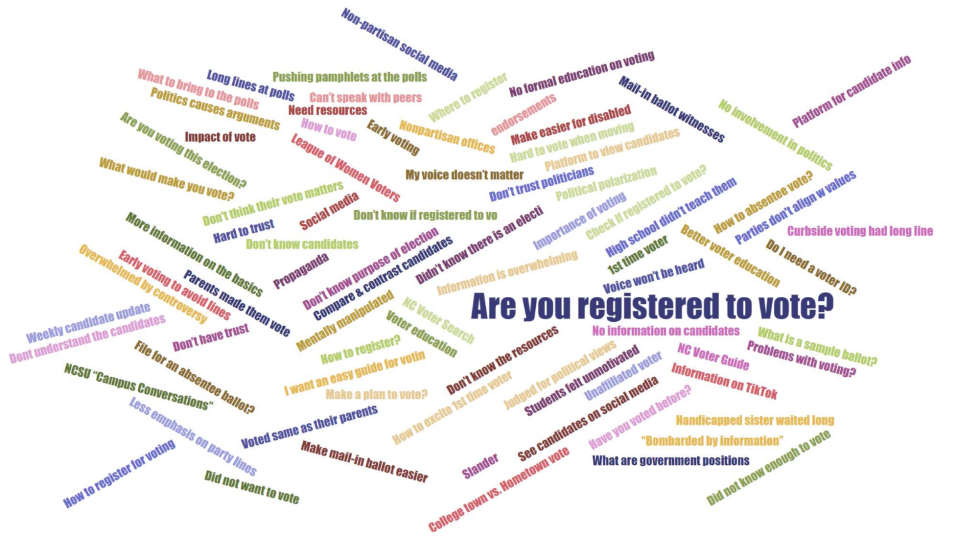
When moving to engaging stakeholders, they decided they wanted to avoid the “low hanging fruit” of focusing on young people. “We looked past that to rural communities, disadvantaged individuals, histories of government distrust, but as we talked to the people around us we discovered there really is a significant problem around why young people aren’t voting.” So despite avoiding it, their focus started to become clear. That did not, however, make it simple. The young stakeholders they spoke with expressed numerous reasons for detachment from voting including: not understanding the purpose of elections, feeling overwhelmed by elections, feeling as though their involvement had no impact or purpose, simply being distrustful of the process as a whole, not understanding the government and its roles, and not feeling welcome as a participant in the political or governmental environment.
Fellow Jackie Cerda-Smith summed it up incredibly well by saying “My ah-ha moment was at our last workshop: Our problem statement was ‘information is not effectively reaching young people.’ But info is out there! It’s just not out there in a way that is targeting young people. We saw that people who wanted to vote found a way to vote, regardless of accessibility, and people who aren’t voting felt like it wasn’t important.”
They realized that voting is not a very positive or communal experience and that moving into their next semester the one thing they want to ask is “how do we make voting less scary and more of a positive, community based activity?”
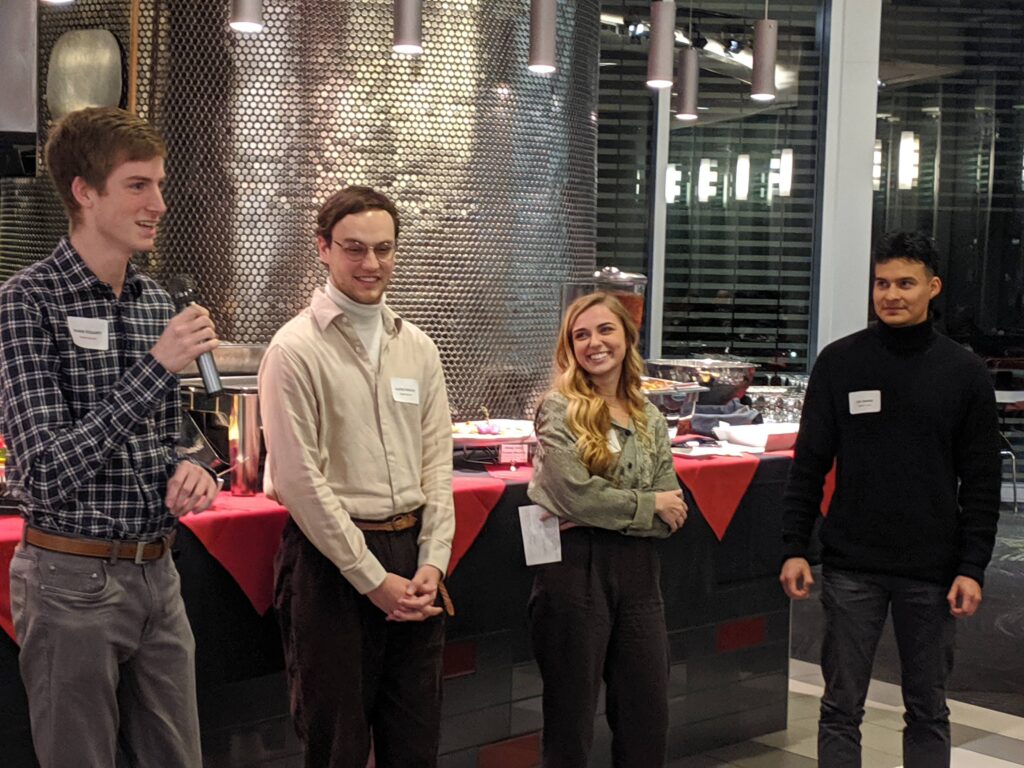
The Impact of Leadership; Senior Fellows
Senior Fellows: Shane Fogarty, Jada Wyatt, Austin Dunlow, Luis Jimenez,
Emma Wilson
In addition to our team projects, this program would not be as impactful without the hard work and dedication of some incredible leaders and mentors. Every year we have been lucky enough to have the support of a group of previous cohort members, called Senior Fellows, who help guide new students through their cohort experience in partnership with each of the teams. Senior Fellow Luis Jimenez, a 2022 graduate from the College of Engineering and Miller Fellow, expressed some of his motivation in returning.
As a Fellow, I remember being in a position where I didn’t always know how to move forward. That was a very difficult place and I wanted to help provide a clearer picture for new Fellows experiencing this for the first time.
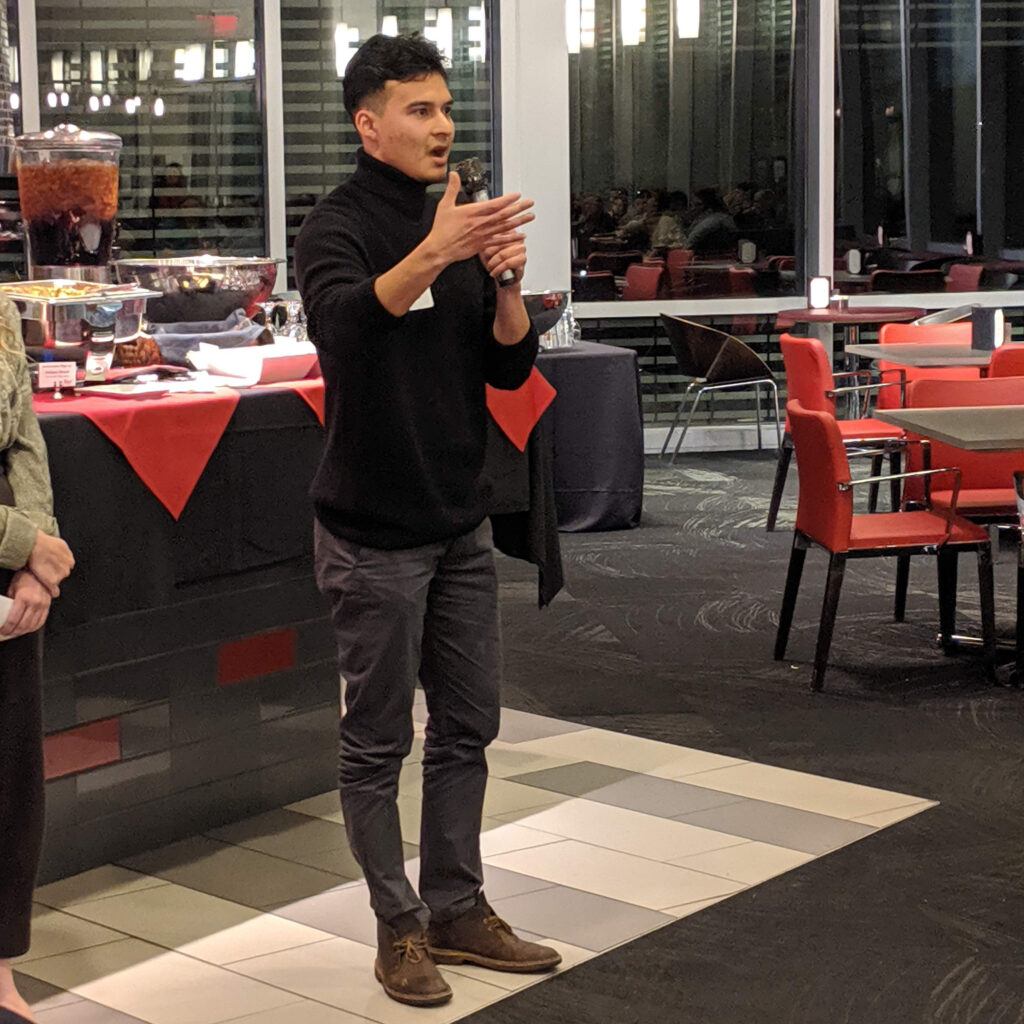
This team of Senior Fellows, spearheaded by NC State senior Jada Wyatt, are crucial in not only facilitating the Fellows experience but helping to continuously reconsider and redesign the Social Innovation Fellows experience as a whole.
From Discover to Design to finally Doing Good
One of the most amazing things about these students is that despite all their hard work creating a foundation of knowledge and understanding for these projects, they are still constantly focused on what they do not know and how much more they want to understand.
As they transition from a place of discovering and designing to actually implementing their ideas, it is crucial to applaud their consistent focus on reevaluation and their willingness to remain in a place of uncertainty and discomfort. We cannot wait to see what this next semester holds for them, both in regards to the personal lessons they will learn and the excellent work they will accomplish!
About the NC State Social Innovation Fellows
The Social Innovation Fellows is a year-long, team-based learning experience which enables students from every academic level and college at NC State to consider more fully their impact on humanity and our planet as social innovators and entrepreneurs. Fellows work in interdisciplinary teams alongside Community Anchors to explore issues of ethics and sustainability at the intersection of social sector and responsible business practice. Throughout the year, to prepare them for their work, they explore curriculum around different methods of problem solving including systems practice and design thinking as well as different models for social entrepreneurship ranging from traditional nonprofits to hybrid social ventures.
- Categories:
